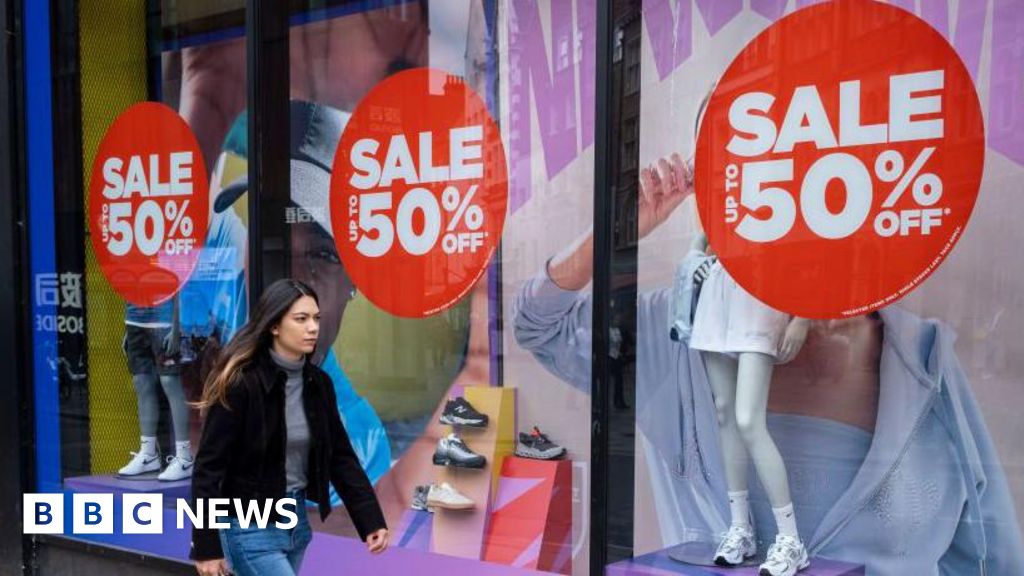Summer sales by retailers trying to shift stock helped shop prices to fall this month for the first time in nearly three years, research suggests.
Prices in August were down 0.3% from a year ago, the first such fall since October 2021, according to the British Retail Consortium (BRC).
The drop in prices was driven by non-food goods, such as clothing and furniture, with poor weather and continued cost-of-living pressures hitting sales.
Food prices continued to rise, but at a slower pace, the BRC industry body said.
Fresh food inflation, such as fruit, meat and fish, had seen the biggest monthly decrease since December 2020, it said, thanks to falling costs from suppliers.
“Retailers will continue to work hard to keep prices down, and households will be happy to see that prices of some goods have fallen into deflation,” said Helen Dickinson, BRC chief executive.
However, she added: “The outlook for commodity prices remains uncertain due to the impact of climate change on harvests domestically and globally, as well as rising geopolitical tensions.
“As a result, we could see renewed inflationary pressures over the next year.”
The most recent official inflation figures – which indicate how fast prices are rising overall – showed the rate rose to 2.2% in July, the first increase this year.
The rise in July had been widely predicted and was due to prices of gas and electricity falling by less than they did a year before.
The Bank of England has predicted the inflation rate will rise to about 2.75% in the coming months before falling below 2% next year.

